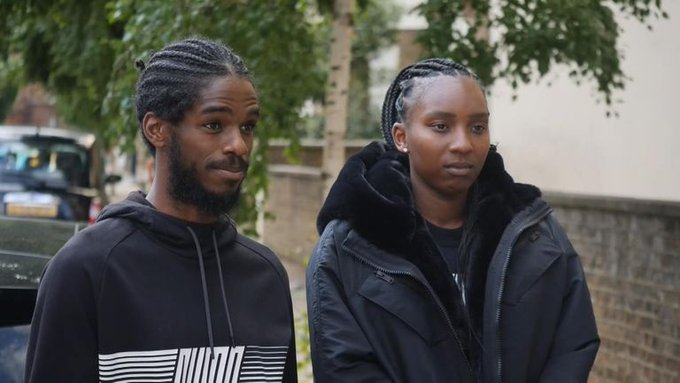Five officers who handcuffed Team GB’s Bianca Williams and her partner Ricardo Dos Santos in 2020 may be fired. The athlete has accused the police force of racial profiling and no doubt, the incident has once again highlighted ethnic disparity when it comes to stop and search practices. Last week, The Independent Office for Police Conduct (IOPC), urged police officers to stop using handcuffs. A Birmingham Live Investigation found that, over the last five years, 62 per cent of people searched under Section 60 were BAME. But, writing on policeoracle.com, former Special Branch Met Officer, Chris Hobbs, hits back and argues for “a more constructive dialogue on the use of stop and search”.
The IOPC report outlines how a police unit followed Bianca Williams and her partner’s car while they were making their way through West London with their three-month-old son in the backseat. Police stopped the couple and searched them for drugs and weapons. A video of the incident was widely shared on social media. Nothing was found, but the report also says that the baby’s details were recorded on Merlin, a police database capturing information about kids who become known to police authorities.
The five officers who took part in the search now have to appear at a gross misconduct disciplinary hearing which may lead to their dismissal from the police force. Sal Naseem, regional director said:
“All five officers – an acting police sergeant and four police constables – will face allegations they breached police standards of professional behaviour for duties and responsibilities and for equality and diversity.
“These matters were assessed as gross misconduct so it will be for the disciplinary panel, led by an independent legally qualified chair to determine whether or not the allegations are proven.”
Bas Javid, Deputy Assistant Commissioner said:
“I acknowledge the IOPC’s direction in this case. We have cooperated fully with the IOPC’s investigation and, in accordance with their direction, are now arranging for an independently-led misconduct hearing to take place.
“I am sorry for the distress that this incident clearly caused Ms Williams and Mr Dos Santos.”
Speaking to The Times after the incident, Ms Williams said:
“It’s always the same thing with Ricardo. They think he’s driving a stolen vehicle, or he’s been smoking cannabis.”
“It’s racial profiling. The way they spoke to Ricardo – like he was scum, dirt on their shoe – was shocking. It was awful to watch.”
Stop and search: IOPC calls for an end to stops based on “stereotypes and racial bias”
The police watchdog published a report and recommendations for reform last week stating that the abuse of stop and search people were causing so much “trauma” for ethnic minorities that they need “protecting”. The report contains 18 recommendations for radical reform of police stop and search powers across England and Wales. It also describes countless incidents where young innocent black people were stopped and searched within moments with the vast majority later released without charge.
According to Home Office statistics, black people are seven times more likely to face police stops and searches. Officers need reasonable suspicion to conduct the procedure and, according to the police watchdog, officers often use thin grounds such as “looking nervous” and the presence in a “high crime area” as justification.
The IOPC indicated that abuses of the controversial powers now “go beyond a few officers”.
Key among the watchdog’s recommendations is the protection of the BAME community from the abuse of stop and search powers. It has urged the College of Policing responsible for police conduct to “develop guidelines on how to safeguard people from a black, Asian or other minority ethnic background from being stopped and searched because of decision-making based upon assumptions, stereotypes and racial bias, and mitigate the risks of indirect discrimination”.
Chris Hobbs, former Special Branch officer’s outspoken response to the IOPC report
In a lengthy opinion piece published earlier this week on Police Oracle, an independent policing news service, former Special Branch Met Officer, Chris Hobbs has hit back at the IOPC. He has accused the police watchdog of providing “little background information” on some of the case studies used in their report. Hobbs writes:
“The use of ‘case studies’ is a useful tool in propping up arguments and could be used by anyone who wishes to denigrate a public body”.
“There is a distinct absence (in the report) of those who could put forward a contrary view that would be representative of those held by most officers who actually have to police our streets on a regular basis.”
“The IOPC report showed virtually no empathy for officers who have to deal with incidents on the streets of London and elsewhere that have resulted in hundreds murdered and grievously injured over the years.”




